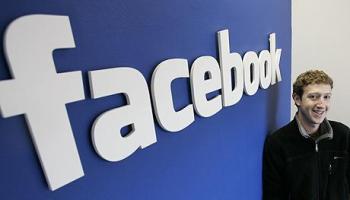Facebook To Bring Internet.org Service To Europe

Richard Branson joins in with impromptu and wide-ranging Q&A with Facebook’s Mark Zuckerberg
Facebook founder and CEO Mark Zuckerberg has opened up about future plans during an impromptu Q&A.
The “Townhall Q&A” lasted an hour and saw Zuckerberg field a variety of questions from different people, and the Facebook boss pledged to do more of them in the future.
Zuckerberg Q&A
Zuckerberg used the Q&A to reveal new information about its Oculus Rift unit and how it fits into the Facebook model, as well as information about personalised learning, net neutrality, learning Mandarin, mobile payments and its Internet initiative.
“We’ve held a few Townhall Q&As over the past few months, and I thought doing a Q&A right here on Facebook would be valuable so more people can participate,” wrote Zuckerberg.
 Perhaps the most interesting development was Zuckerberg’s admission that the Internet.org project, which aims to connect the so far unconnected parts of the world to the Internet, will be coming to Europe.
Perhaps the most interesting development was Zuckerberg’s admission that the Internet.org project, which aims to connect the so far unconnected parts of the world to the Internet, will be coming to Europe.
Facebook’s Internet.org services have already been rolled out in India, Zambia, Ghana, Kenya, Tanzania and Columbia.
When he was asked by a user whether he intended to expand the Internet.org project even in Europe, Zuckerberg confirmed that would happen.
“Yes, we want to bring Internet.org everyone where there are people who need to be connected,” replied Zuckerberg. “We’re starting off by prioritising the countries with the most unconnected people and by working with network operators and governments who are most excited about working with Internet.org to get everyone online in their countries.”
Last month, Facebook revealed that it has successfully conducted the first test flight of its solar-powered UAV drone. Since its purchase of drone specialists Titan Aerospace last March, the new drones will be able to fly at up to 90,000 feet to beam an Internet signal to the ground below.
Even Richard Branson got in on the action.
“Hi Mark. I share your view that it is crucial to connect the two thirds of the world that don’t currently have access to the internet. What do you think will be the biggest benefits of this?,” Branson asked.
“Thanks for stopping by Richard Branson” replied Zuckerberg. “When we talk about connecting the world, most people talk about the clear benefits to all the people who will get internet access and don’t have it today. Those benefits are many: access to education, health information, jobs and so on. Many people estimate that for every billion people we connect, we’ll raise more than 100 million out of poverty.”
 “But one thing that we often overlook in this discussion is how everyone who is already connected will benefit from having everyone online,” he added. “Think about how many brilliant entrepreneurs there are out there who have great ideas and the will to change the world, but just lack basic tools to do so today. If you go by the population, almost 2/3 of these entrepreneurs don’t have internet access today. Once they get connected, we may have 3x as many good ideas and amazing new services built that will benefit everyone around the world.”
“But one thing that we often overlook in this discussion is how everyone who is already connected will benefit from having everyone online,” he added. “Think about how many brilliant entrepreneurs there are out there who have great ideas and the will to change the world, but just lack basic tools to do so today. If you go by the population, almost 2/3 of these entrepreneurs don’t have internet access today. Once they get connected, we may have 3x as many good ideas and amazing new services built that will benefit everyone around the world.”
Dog Photo
Zuckerberg also revealed more about Oculus VR, the virtual-reality company that Facebook purchased for $2bn (£1.1bn) back in March 2014, when one Facebook user asked him about his vision of Oculus.
“Our mission to give people the power to experience anything,” replied Zuckerberg. “Even if you don’t have the ability to travel somewhere, or to be with someone in person, or even if something is physically impossible to build in our analog world, the goal is to help build a medium that will give you the ability to do all of these things you might not otherwise be able to do. This will be incredibly powerful as a communication medium as well.”
“Just like we capture photos and videos today and then share them on the internet to let others experience them too, we’ll be able to capture whole 3D scenes and create new environments and then share those with people as well,” he added. “It will be pretty wild.”
Zuckerberg also revealed that it takes lots of practice to speak Mandarin, that he does not believe that Facebook hinders communication skills (surprise surprise), that he reads both fiction and non-fiction books, and that he typically works 50 to 60 hours a week.
He even shared a new picture of his dog (called Beast), a Hungarian Puli (a sheepdog that sports dreadlocks).
What do you know about Facebook? Try our quiz!